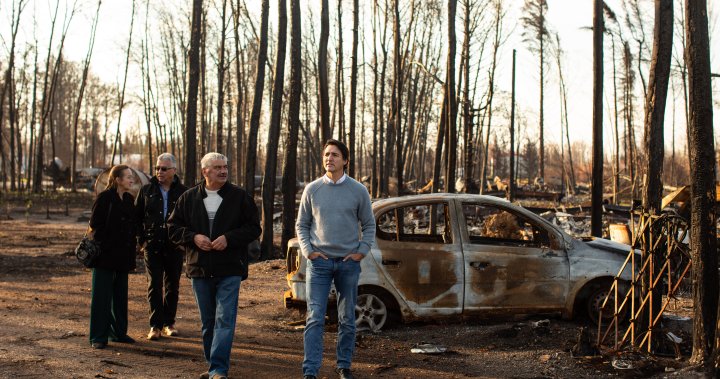Even before the month of July had ended, it was already on track to be the hottest month ever recorded.
A concerned United Nations Secretary-General Antonio Guterres said the era of global warming was at an end. He said the world is now in an era of “global boiling.”
Guterres said the world was seeing “children swept away by monsoon rains, families running from the flames (and) workers collapsing in scorching heat,” and 2023 saw such climate disasters across the globe.
In July, heavy rains and flooding killed people in Japan, India, China and the United States. July 3 was the hottest day on record. That same month, the air in several major Canadian cities smelled like burning campfires. Air quality plummeted that month around the world because of wildfire smoke, made worse by the adverse effects of climate change in an “unprecedented” fire season.
According to data from Natural Resources Canada, the country saw a total of 6,174 fires as of Sept. 6, with 284 evacuation orders issued this year and 232,209 people forced from their homes.
Four provinces and one territory saw records set in terms of area burnt in wildfires, with 5.3 million hectares in Quebec, 3.6 million hectares in the Northwest Territories, 2.3 million hectares in Alberta, 1.9 million hectares in B.C. and 25,000 hectares in Nova Scotia.
The wildfires have also made greenhouse gas emissions worse, with an estimated 1.7 billion tonnes of CO2 emitted by September. Prime Minister Justin Trudeau called the devastation “apocalyptic.”
“That’s (what) just over one degree of warming looks like. And it really makes clear that the costs of inaction,” Julia Levin, associate director of the National Climate Program at Environmental Defence Canada, told Global News.
Get the latest National news.
Sent to your email, every day.
She said this was “just a preview” of what is to come.
“The world is on track for somewhere between 2.5 to three degrees of warming. And it’s terrifying. We used to refer to 1.5 degrees as the climate safe limit. But we’re clearly past any kind of a safe threshold.”
Caroline Brouillette, director-general of the Climate Action Network, said 2023 made it clear that nowhere, including Canada, would be safe from the effects of climate change.
“(Last year) was a year when climate impacts hit home for many Canadians. We’ve seen around the world extreme weather events happen at an increasing frequency and intensity, but those have impacted the Global South disproportionately,” Brouillette said.
In 2023, a heat wave in Mexico led to a dwindling supply of hot peppers for some Canadian food producers. There are already predictions that extreme weather events could continue in 2024, including a drought forecast for Alberta next summer, which could lead to issues around water scarcity and food security.
From food security to Canada’s winter tourism industry, research has shown climate change is expected to impact large swaths of the Canadian economy in the coming years.
Experts have warned that Canadians remain “very vulnerable,” and that the after-effects of the fires could continue to raise the risks for more disasters and environmental challenges to come.
Still, there have been multiple policy announcements over the past year on climate change, including laying out methane regulations, a framework to cap emissions from oil and gas, and a road map to electric vehicle targets.
While the oil and gas sector accounts for 7.2 per cent of Canada’s nominal GDP, research shows that the sector has been undercutting Canada’s progress in reducing emissions. According to the most recent National Inventory Report, Canada’s oil and gas sector accounted for 28 per cent of national emissions in 2021, making it the largest contributor to Canada’s emissions, followed by the transportation sector at 22 per cent.
While Brouillete and Levin say they believe there is still too much wiggle room in the climate targets, the possibility of a nearing federal election also raises the stakes to get legislation in place.
Levin also said she wants to see more work by provinces to tackle emissions and regulations within their jurisdictions, and that she was hopeful that jobs like retrofitting old infrastructure and building local energy grids could even bring sustainable jobs to communities that haven’t had many so far.
“Clean energy jobs mean communities and families aren’t torn apart. People don’t have to spend all of their time in these really toxic workplaces. They mean people can live in their communities,” she said.
© 2024 Global News, a division of Corus Entertainment Inc.




